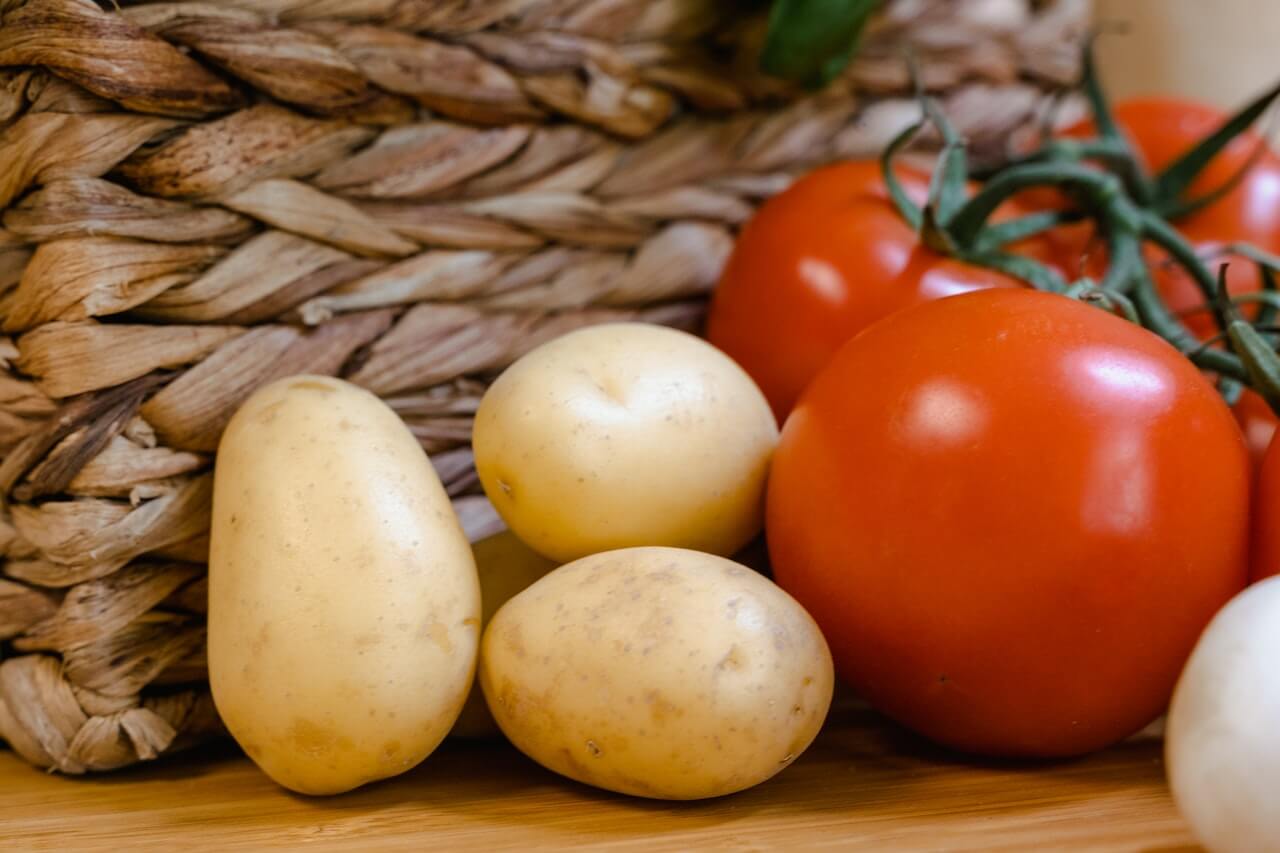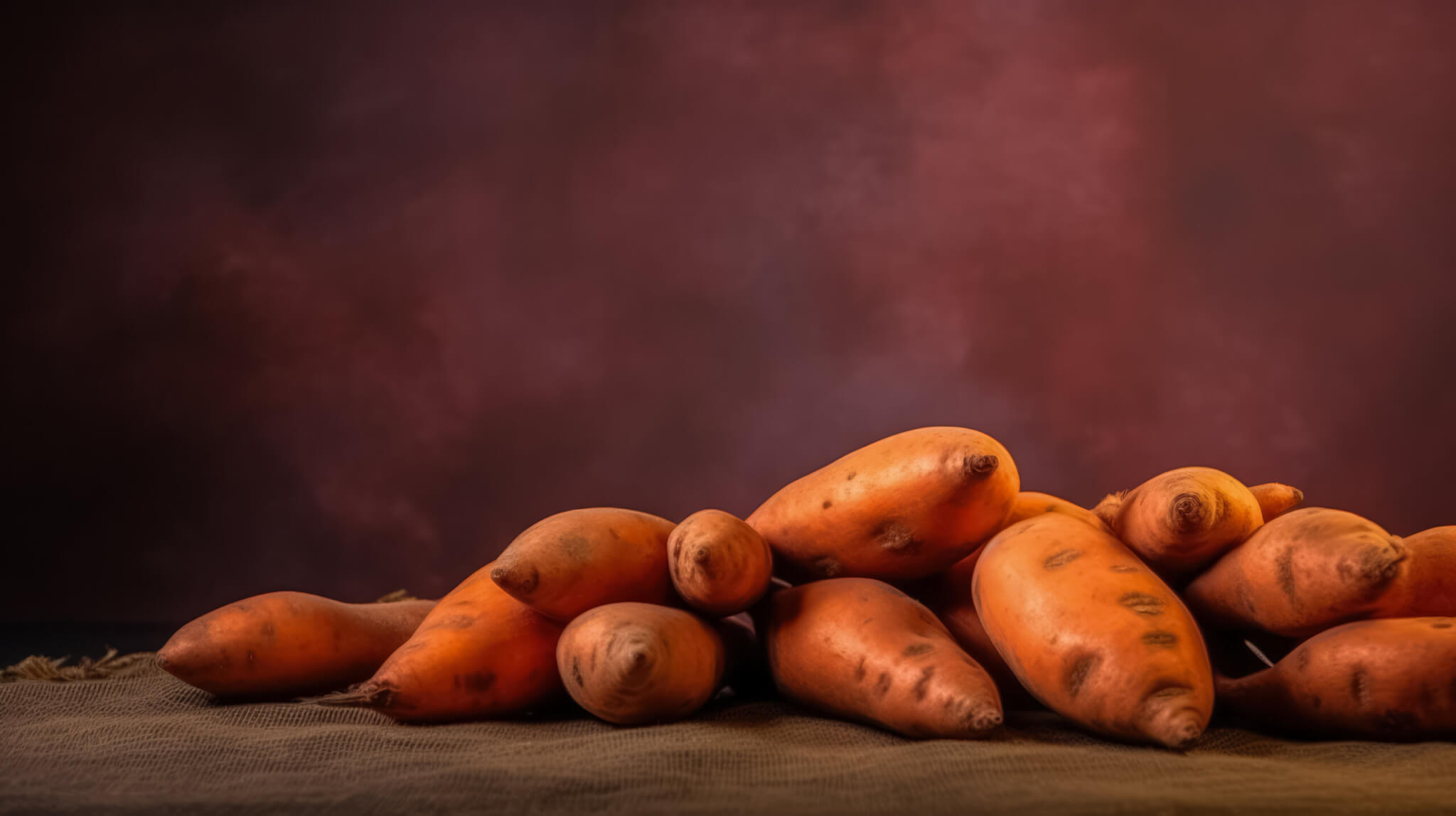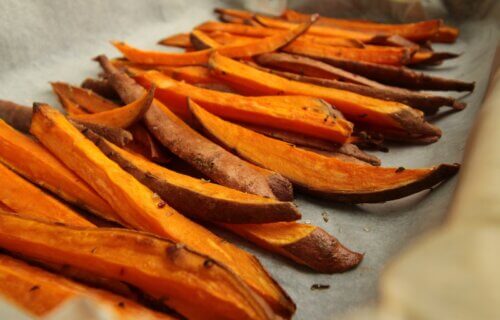Potatoes of all kinds are a staple in diets around the world. In the United States, potatoes are the most commonly eaten vegetable. Diet culture often views sweet potatoes as the “better” choice over white potatoes, as if the white variety has nothing to offer but carbs.
Frying potatoes, a common practice in fast food, increases their calories and fat content significantly, thus changing the nutritional value they provide. However, that doesn’t mean the potatoes themselves are unhealthy.
The origins of sweet and white potato
Both types of potatoes are root vegetables. Despite them often being considered closely related, they actually come from two different plant families. Sweet potatoes come from one called Convolvulaceae, and white potatoes come from the Solanaceae family. You may have heard of potatoes being called “nightshade” vegetables. This only applies to white potatoes because of the family they come from. Tomatoes and eggplants also are part of this family.

Does this make sweet potatoes better?
You might’ve heard that sweet potatoes have way more nutrients than white potatoes, but this doesn’t hold up. In reality, both are very nutritious, just in different ways. Here are some of the differences:
Calories: One medium white potato contains approximately 150 calories, while a medium sweet potato contains approximately 100 calories. Obviously, white potatoes contain a bit more, but it isn’t significant in the grand scheme of things. Both are low-calorie carbohydrates, if you are looking for that.
Protein: Potatoes aren’t the best protein choice, but they do have a little bit. For comparison’s sake, both sweet and white provide two grams in a medium size.
Fat: As long as you don’t fry them or completely douse them in oil, potatoes are a great low-fat food source. Both contain a negligible amount of fat. If you ate a medium size of either variety, you’d get roughly 0.5 grams of fat from two potatoes.
Carbs: The low-carb crowd prefers sweet potatoes more than white, but in reality, their carb count isn’t that different. One medium sweet potato has ~23 grams of carbs, while one white has ~26 grams. However, you may be concerned about the glycemic index (GI), which measures how much food affects blood sugar.
Depending on the cooking method and type of potato, the value can vary. For example, both types of potatoes can have a lower GI if boiled. If they’re roasted, the GI increases significantly. As such, it’s recommended to pair them with a non-starchy vegetable for fiber as well as a protein source to slow glycemic response. People with diabetes may benefit from reducing their consumption of high-GI foods.
Fiber: One medium white potato contains two grams of fiber, while one medium sweet potato contains ~3.5 grams of fiber. This is only roughly a 1.5-gram difference, so either one is pretty good. Fiber helps to digest the sugars in the potatoes as well as promote satiety.
Vitamins and minerals: Most notably, sweet potatoes boast their bright orange hue because of their beta carotene content. Beta carotene is a precursor to vitamin A, meaning it converts to that in the body.
In this regard, they blow white potatoes out of the water. White potatoes have next to none, while just one medium sweet potato can provide over 100 percent of your daily needs. Otherwise, both types of potatoes provide ample amounts of vitamin C, B6, potassium (more abundant in white), calcium, and magnesium.

Picking a potato
Don’t let French fries convince you that regular potatoes are “bad.” Both sweet and white potatoes are great choices and can absolutely fit into a healthy, varied diet. They each provide healthy carbs to support your body, fiber, vitamins, and minerals. Sweet potatoes stand out the most in that they provide way more vitamin A, but otherwise, both are nutritionally similar. One doesn’t deserve any more of the spotlight than the other.
You might also be interested in:
- Spud surprise: Eating potatoes won’t increase diabetes or hypertension risk, study claims
- Sweet potato mystery: Research suggests veggie not so American after all
- Most Nutritious Vegetables: Top 5 Healthy Options Most Recommended By Experts


That is BS. I boil sweet potatoes and they are much better in taste and nutrients than white potatoes. Apples and Oranges.